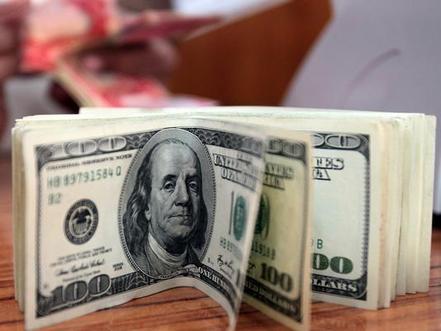Oueidat Asks Swiss, Lebanese Authorities for Info on Suspected Transfers

State Prosecutor Ghassan Oueidat on Monday requested information from Swiss and Lebanese authorities about the alleged transfer abroad of large sums of money by a number of Lebanese politicians.
The National News Agency said Oueidat has sought the help of “the Swiss judiciary, the Special Investigation Commission of Banque du Liban and the Banking Control Commission of Lebanon.”
The agency added that the prosecutor has asked for information to verify whether or not Lebanese politicians have recently made any “suspicious” transfers.
Asharq al-Awsat newspaper reported Sunday that the Lebanese judiciary has launched an investigation into reports claiming that nine Lebanese politicians have transferred $2 billion abroad over the past 15 days.
It said the judicial probe got underway simultaneously with the investigations that are being carried out by the central bank.
“Intensive investigations were launched Friday by the Central Criminal Investigations Bureau, under direct supervision by State Prosecutor Ghassan Ouweidat,” a senior judicial official told the daily.
Authorities “listened to the testimony of the person who disclosed the information, financial expert Marwan Iskandar, who provided them with the information he knows,” the source added.
Iskandar meanwhile told Asharq al-Awsat that the money “was normally transferred and not smuggled as being rumored.”
Faced with a grinding U.S. dollar liquidity crisis, Lebanon's banks have since September imposed increasingly tight restrictions on dollar withdrawals and transfers abroad in an attempt to conserve dwindling foreign currency reserves. Activists say ordinary depositors are footing the bill for a liquidity crisis worsened by politicians, senior civil servants and bank owners who used their influence to get their hefty savings out of the country.
Iskandar revealed that a Swiss official has told him that the transferred money amounts to $2 billion and that it belongs to “nine Lebanese politicians.”
“What’s dangerous is that the sums were transferred over the past 15 days, during the peak of the liquidity crisis,” Iskandar explained.
“The Swiss parliament has started a serious probe into the issue and it will publicize the results of this investigation once it is finished, and I don’t believe that the Lebanese side will obtain information before the end of the Swiss probe,” Iskandar added.
“There is major difficulty in recovering funds sent abroad,” Iskandar said, reminding that the Philippines has failed to retrieve $2.5 billion transferred by a president who died 30 years ago and that Egypt has also failed to recover the funds sent abroad by ousted president Hosni Mubarak.
Bank transfers whether it’s a dollar or a million are perfectly legal and authorized.
Corruption, squandering of public funds and having a mini Iranian state slowly but surely eroding a fragile county is what needs to be investigated and stopped.
Do not disagree but in Lebanon everything is tied to politics and politics is tied to the various sects which means the only credible investigation should only be done by an independent commission and not by a erratic corrupt and sectarian aligned judiciary like we have in Lebanon.
the whole place is corrupt the whole place is like a cann of worms you patch one hole 10 more surface
It's not a matter of the legality of the transfers, it is more of the double sidedness of the banks allowing them while capping everyone else at $200 per week or whatever arbitrary measure they use. If the banks and BDL allowed these transfers and then starting limiting people's withdrawals, there will be hell to pay and I don't think the head of BDL will survive and a few banks may go down too.
Two billion divided by three million lebanon is almost a $1000 per person, and that doesn't include the other billions which had been transferred out since September.



